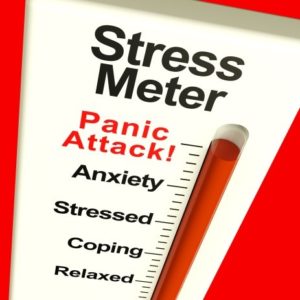The Symptoms of Stress
The Symptoms of Stress
According to the website, http://www.healthline.com/health/stress/effects-on-body, “untamed” (my term, not theirs) chronic stress can have numerous negative effects on various components of our health. The following is a brief synopsis on how each body system is affected by stress.
Mentally, Emotionally and Socially
Symptoms of chronic stress include irritability, anxiety, and depression. You may suffer from headaches or insomnia. Chronic stress is also a factor in some behaviors like overeating or undereating, alcohol or drug abuse, or social withdrawal.
Cardiovascular System
Frequent or chronic stress makes your heart work too hard for too long, raising your risk of hypertension and problems with your blood vessels and heart. With chronic stress, you’re at higher risk of having a stroke or heart attack.
Digestive System
With chronic stress, you might experience nausea, vomiting, or a stomachache. Stress can affect the way food moves through your body, leading to diarrhea or constipation.
Muscular System
If you’re constantly under stress, your muscles don’t get the chance to relax. Tight muscles cause headaches, back and shoulder pain, and body aches. The term “stress” means to draw tight, which originated from the Latin word stringere.
Reproductive System
Stress is exhausting for the body and for the mind. It’s not unusual to lose your desire for sex when you’re under chronic stress. For women, stress can affect the menstrual cycle. For men, if stress continues for a long time, a man’s testosterone levels begin to drop.
Immune System
Stress stimulates the immune system. In the short term, that’s a bonus. It helps you stave off infection and heal wounds. With chronic stress, however, cortisol compromises your immune system. People under chronic stress are more susceptible to viral illnesses like influenza and the common cold. It also increases risk of infections and the time it takes to recover from illness or injury.
Conclusion
Going over all the ways stress affects your body physically is beyond the scope of this blog. However, the moral of the story is this: Stress has an immediate effect on your body. In the short term, that’s not necessarily a bad thing, but chronic stress puts your health at risk. In addition, the effects of chronic stress are systemic. That means that if one system is affected it can lead to deficits in other connected systems as well.
If you’d like to learn more about cognitive strategies to reframe stress, tame and harness it, and use its power to your advantage, please check out the link below.
Image Source: https://www.cedars-sinai.org/blog/hidden-symptoms-of-stress.html

